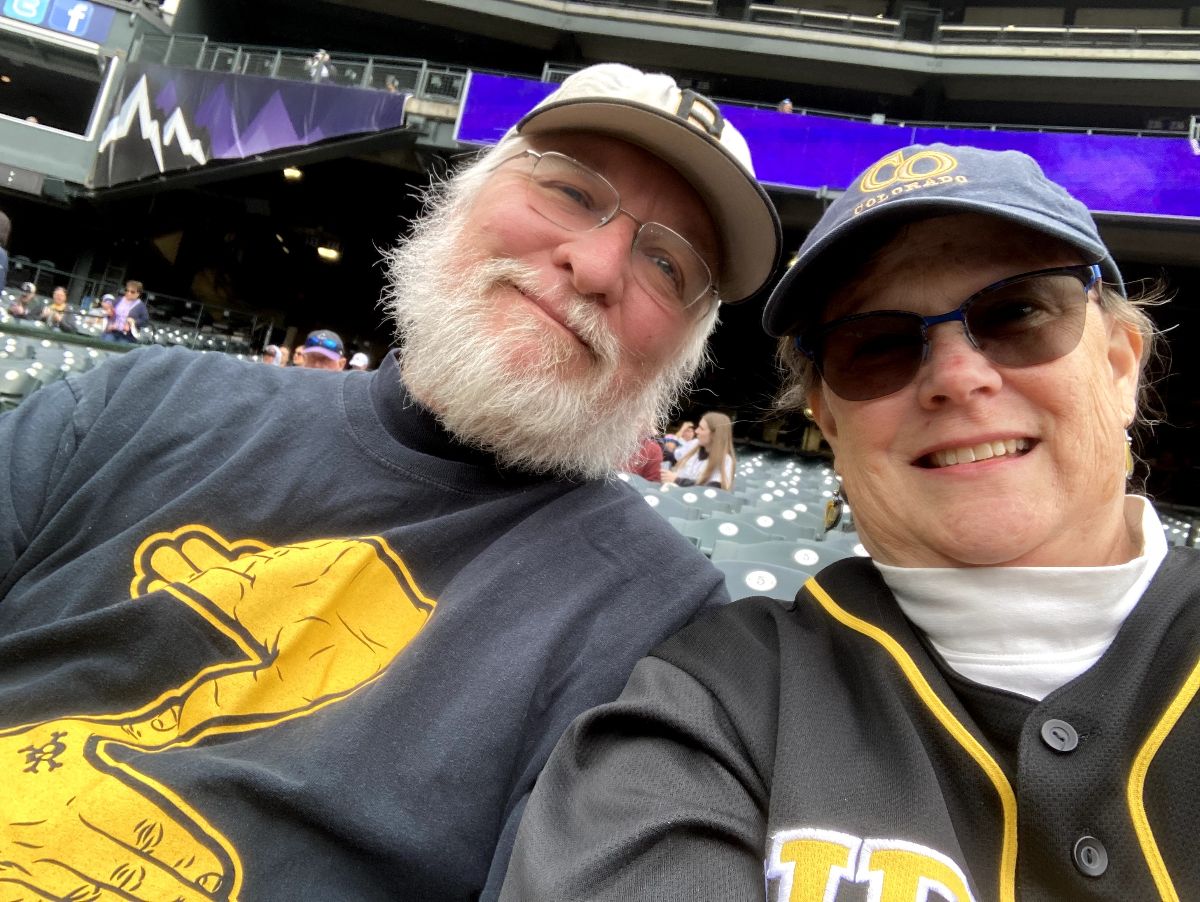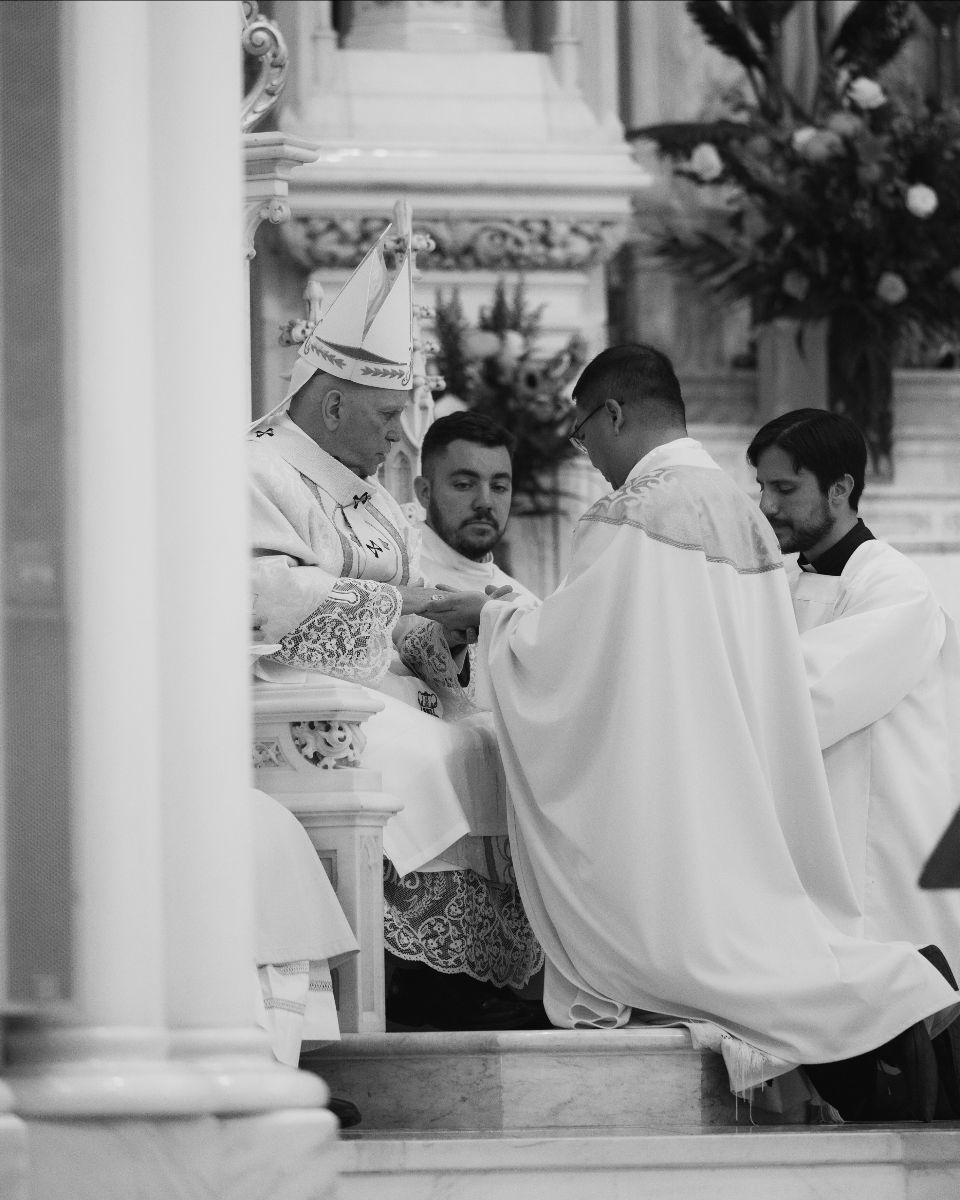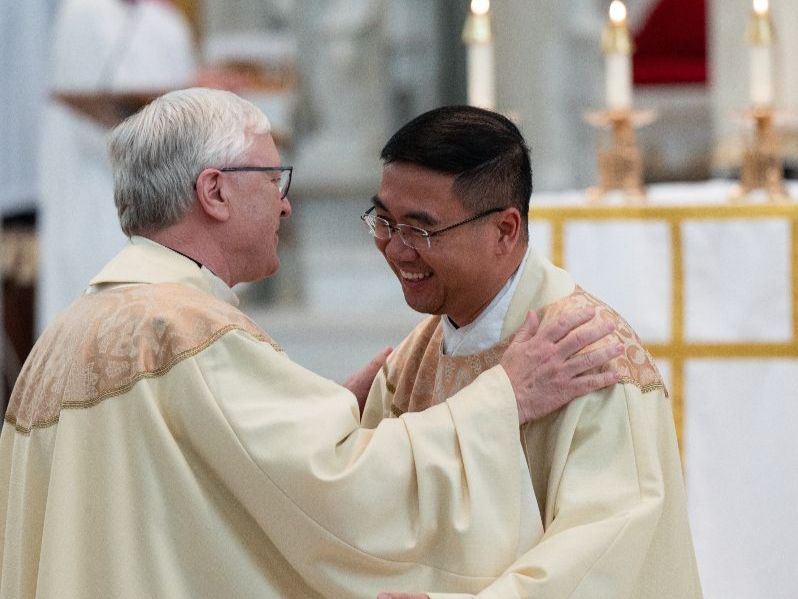June always brings a serene quiet to the seminary. While the men are back in their dioceses, serving in parishes or other ministries, we staff and faculty of the seminary get down to all the work of closing out the year – and building out the next. Summertime brings a blessed time of rest and prayer, as we reflect upon the blessings brought by the last year.
In light of this moment, I want to offer a word of particular gratitude to the seminary staff and faculty. The rector and I are surrounded by a team of outstanding people, faithful to the Church and deeply committed to our shared mission of priestly formation. To all of them, a heartfelt thanks for a wonderful year!
Most specifically, I want to acknowledge the retirement of Drs. Terry and Susan Wright. I remember my first semester in philosophy, taking Metaphysics for the first time and having no idea what we were talking about! The Wrights were two of my all-time favorite professors, and the sentiment is largely shared by our alumni. They will be missed, but certainly remain part of the seminary family.
And lastly, save the date! In 2024, St. John Vianney will be celebrating its 25th anniversary. As the anniversary itself falls on St. Patrick’s Day – and having an Irish rector – there is nothing more fitting than a Gala on March 17th. We look forward to celebrating the great work God has done through our beloved institution, now having ordained over 200 men!
Wishing you all a blessed and joyful summer!
Fr. John

TEACHING PHILOSOPHY
As we look back on our twenty-two years of teaching at St. John Vianney one constant has been the delight of watching men who have a little or no background in philosophy develop an appreciation for it. A few men who enter seminary have undergraduate degrees in philosophy or perhaps have studied in a great books program, but the vast majority come to us with backgrounds in subjects like accounting or engineering or perhaps political science or music. Many men anticipate the study of philosophy as something that they will not be any good at or that they are not sure is relevant to their priestly formation or both.
But then they take metaphysics. And at some point, in that first semester, unfamiliar and abstract distinctions like substance/accidents or form/telos begin to make sense and suddenly a face or two will light up, and occasionally someone will say out loud, “Wait! That helps explain X!” — and the look on his face adds, “And I actually understand it!” Because we have taught at different points of the curriculum, one of us mostly in the first year and the other mostly in the second, we have been able to share a running tally and, almost without fail, we have been able to see particular men have their particular “light bulb” moment, sometimes in their second semester, sometimes in their third, and some even in their fourth. What a joy it has been to be part of bringing men to such a moment, to help them know that the reality God has called us into is meaningfully if not comprehensively knowable by us.
-Dr. Susan Selner Wright
-Dr. Terrence Wright

“SERVE OTHERS SELFLESSLY”
On the day of my ordination, Archbishop Samuel J. Aquila said these words while he anointed my hands: “The Father anointed our Lord Jesus Christ through the power of the Holy Spirit. May Jesus preserve you to sanctify the Christian people and to offer sacrifice to God.”
These words still echo in my mind. The act of anointing signifies that the newly ordained priest is set apart from ordinary life and consecrated to God. He is called to be a good shepherd for his flock, leading them on their journey toward God.
In The Nature of The Priesthood, Cardinal Joseph Ratzinger mentioned:
“Apart from Me you can do nothing” (Jn 15:5). This “nothing” which the disciples share with Jesus expresses at one and the same time both the power and the infirmity of the apostolic ministry. By themselves, of their own strength, they can do none of those things which apostles must do. How could they of their own accord say, “I forgive you your sins”? How could they say, “This is my body”? How could they perform the imposition of hands and say, “Receive the Holy Spirit”? None of those things which constitute apostolic activity are done by one’s own authority. But this expropriation of their very powers constitutes a mode of communion with Jesus, who is wholly from the Father, with Him all things and nothing without Him.
On my ordination, I asked the Lord to help me to serve others selflessly in imitation of Christ, who gave Himself completely for us all. I know that the Lord is working in me, I am His instrument. Finally, I would like to conclude with the words of Saint Paul to Galatians: “yet I live, no longer I, but Christ lives in me.” (Gl 2:20)



